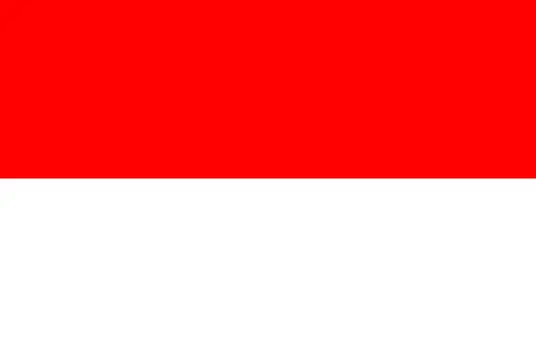
-
 Español
Español
-
 Portugues
Portugues
-
 Pусский
Pусский
-
 Français
Français
-
 Deutsch
Deutsch
-
 日本語
日本語
-
 한국어
한국어
-
 العربية
العربية
-
 Italiano
Italiano
-
 Nederlands
Nederlands
-
 Ελληνικά
Ελληνικά
-
 Svenska
Svenska
-
 Polski
Polski
-
 ไทย
ไทย
-
 Türk dili
Türk dili
-
 हिन्दी
हिन्दी
-
 Indonesia
Indonesia
-
 Melayu
Melayu
-
 Tiếng Việt
Tiếng Việt
-
 中文
中文
-
 dansk
dansk
-
 Magyar
Magyar
-
 қазақ
қазақ
-
 বাংলা
বাংলা
-
 עִברִית
עִברִית
-
 čeština
čeština
-
 Soomaali
Soomaali
-
 မြန်မာ
မြန်မာ
-
 فارسی
فارسی
-
 українська
українська
-
 norsk
norsk
-
 Gaeilge
Gaeilge
-
 беларускі
беларускі
-
 Română
Română
-
 ພາສາລາວ
ພາສາລາວ
-
 Filipino
Filipino
-
 lietuvių
lietuvių
-
 Cymraeg
Cymraeg
-
 македонски
македонски
-
 Suomalainen
Suomalainen
-
 slovenský
slovenský
-
 o'zbek
o'zbek
-
 اردو
اردو
-
 հայերեն
հայերեն
-
 Igbo
Igbo
-
 български
български
-
 سنڌي
سنڌي
-
 Shona
Shona
-
 සිංහල
සිංහල
-
 Hrvatski
Hrvatski
-
 íslenskur
íslenskur
-
 galego
galego
-
 català
català
-
 Zulu South Africa
Zulu South Africa
-
 Afrikaans isiXhosa
Afrikaans isiXhosa
-
 ಕನ್ನಡ
ಕನ್ನಡ
-
 lëtzebuergesch
lëtzebuergesch
-
 Indonésia Sunda
Indonésia Sunda
-
 basa jawa
basa jawa
-
 ગુજરાતી
ગુજરાતી
-
 Кыргызча
Кыргызча
-
 тоҷикӣ
тоҷикӣ
-
 Србија
Србија
-
 Twi
Twi
-
 Hawaii
Hawaii
-
 Cebu
Cebu
-
 नेपाल
नेपाल
-
 euskara
euskara
-
 Kurdî
Kurdî
-
 frissi
frissi
-
 יידיש
יידיש
-
 latvija
latvija
-
 slovenija
slovenija
-
 kiswahili
kiswahili
-
 ਪੰਜਾਬ
ਪੰਜਾਬ
-
 پښتو
پښتو
-
 საქართველოს
საქართველოს
-
 hua moni
hua moni
-
 bosna
bosna
-
 తెలుగు
తెలుగు
-
 தமிழ்
தமிழ்
-
 Kreyòl ayisyen
Kreyòl ayisyen
-
 Eesti
Eesti
-
 Corsica
Corsica
-
 Yoruba
Yoruba
-
 Gàidhlig na h-Alba
Gàidhlig na h-Alba
-
 Samoa
Samoa
-
 Монгол
Монгол
-
 Hausa
Hausa
-
 Azərbaycan
Azərbaycan
-
 አማራ
አማራ
-
 Shqipëria
Shqipëria
-
 Malagasy
Malagasy
-
 मराठी
मराठी
-
 മലയാളം
മലയാളം
-
 Malta
Malta
-
 ខ្មែរ
ខ្មែរ
-
 Chicheva
Chicheva
-
 中文(繁体)
中文(繁体)
-
 ଓଡିଆ
ଓଡିଆ
-
 Setswana
Setswana
-
 Afrikaans
Afrikaans
-
 Aymara
Aymara
-
 Башҡорт
Башҡорт
-
 Türkmenler
Türkmenler
-
 ትግሪኛ
ትግሪኛ
-
 Afaan Oromoo
Afaan Oromoo
-
 অসমীয়া
অসমীয়া
-
 Kinyarwanda
Kinyarwanda
-
 Ilocano
Ilocano
-
 Wolof
Wolof
-
 अवधी
अवधी
-
 Oluganda
Oluganda
-
 Bikol
Bikol
-
 Fulɓe
Fulɓe
-
 Kikongo
Kikongo
-
 Sango
Sango
-
 ދިވެހި
ދިވެހި
-
 Lingala
Lingala
-
 मैथिली
मैथिली
-
 Tsonga
Tsonga
-
 ꯃꯦꯏ ꯊꯥꯏ꯫
ꯃꯦꯏ ꯊꯥꯏ꯫
-
 brezhoneg
brezhoneg
-
 Furlan
Furlan
-
 नेवा
नेवा
-
 རྫོང་ཁ
རྫོང་ཁ
-
 Santali
Santali
-
 Аҧсуа
Аҧсуа
-
 Нохчийн
Нохчийн
-
 Чӑваш
Чӑваш
-
 Татар
Татар
-
 Batak Karo
Batak Karo
-
 دری
دری
-
 Diura
Diura
-
 Fengyu
Fengyu
-
 Eʋegbe
Eʋegbe
-
 Iban
Iban
-
 Fiji
Fiji
-
 Tonga
Tonga
-
 Inuktitut
Inuktitut
-
 Nahuatl
Nahuatl
-
 maaya yucatec
maaya yucatec
-
 Runasimi
Runasimi
-
 guarani
guarani
-
 Qafar
Qafar
-
 Acholi
Acholi
-
 Dinka
Dinka
-
 Luo
Luo
-
 Lundi
Lundi
-
 isiNdebele
isiNdebele
-
 Tshivenḓa
Tshivenḓa
-
 Sesotho sa Leboa
Sesotho sa Leboa
-
 Sesotho sa Borwa
Sesotho sa Borwa
-
 Ndumbe
Ndumbe
-
 Papuan Pidgin
Papuan Pidgin
-
 Rromani ćhib
Rromani ćhib
-
 Thok Nath
Thok Nath
yuxiatugong@163.com
+86 18353494641
-
 Español
Español
-
 Portugues
Portugues
-
 Pусский
Pусский
-
 Français
Français
-
 Deutsch
Deutsch
-
 日本語
日本語
-
 한국어
한국어
-
 العربية
العربية
-
 Italiano
Italiano
-
 Nederlands
Nederlands
-
 Ελληνικά
Ελληνικά
-
 Svenska
Svenska
-
 Polski
Polski
-
 ไทย
ไทย
-
 Türk dili
Türk dili
-
 हिन्दी
हिन्दी
-
 Indonesia
Indonesia
-
 Melayu
Melayu
-
 Tiếng Việt
Tiếng Việt
-
 中文
中文
-
 dansk
dansk
-
 Magyar
Magyar
-
 қазақ
қазақ
-
 বাংলা
বাংলা
-
 עִברִית
עִברִית
-
 čeština
čeština
-
 Soomaali
Soomaali
-
 မြန်မာ
မြန်မာ
-
 فارسی
فارسی
-
 українська
українська
-
 norsk
norsk
-
 Gaeilge
Gaeilge
-
 беларускі
беларускі
-
 Română
Română
-
 ພາສາລາວ
ພາສາລາວ
-
 Filipino
Filipino
-
 lietuvių
lietuvių
-
 Cymraeg
Cymraeg
-
 македонски
македонски
-
 Suomalainen
Suomalainen
-
 slovenský
slovenský
-
 o'zbek
o'zbek
-
 اردو
اردو
-
 հայերեն
հայերեն
-
 Igbo
Igbo
-
 български
български
-
 سنڌي
سنڌي
-
 Shona
Shona
-
 සිංහල
සිංහල
-
 Hrvatski
Hrvatski
-
 íslenskur
íslenskur
-
 galego
galego
-
 català
català
-
 Zulu South Africa
Zulu South Africa
-
 Afrikaans isiXhosa
Afrikaans isiXhosa
-
 ಕನ್ನಡ
ಕನ್ನಡ
-
 lëtzebuergesch
lëtzebuergesch
-
 Indonésia Sunda
Indonésia Sunda
-
 basa jawa
basa jawa
-
 ગુજરાતી
ગુજરાતી
-
 Кыргызча
Кыргызча
-
 тоҷикӣ
тоҷикӣ
-
 Србија
Србија
-
 Twi
Twi
-
 Hawaii
Hawaii
-
 Cebu
Cebu
-
 नेपाल
नेपाल
-
 euskara
euskara
-
 Kurdî
Kurdî
-
 frissi
frissi
-
 יידיש
יידיש
-
 latvija
latvija
-
 slovenija
slovenija
-
 kiswahili
kiswahili
-
 ਪੰਜਾਬ
ਪੰਜਾਬ
-
 پښتو
پښتو
-
 საქართველოს
საქართველოს
-
 hua moni
hua moni
-
 bosna
bosna
-
 తెలుగు
తెలుగు
-
 தமிழ்
தமிழ்
-
 Kreyòl ayisyen
Kreyòl ayisyen
-
 Eesti
Eesti
-
 Corsica
Corsica
-
 Yoruba
Yoruba
-
 Gàidhlig na h-Alba
Gàidhlig na h-Alba
-
 Samoa
Samoa
-
 Монгол
Монгол
-
 Hausa
Hausa
-
 Azərbaycan
Azərbaycan
-
 አማራ
አማራ
-
 Shqipëria
Shqipëria
-
 Malagasy
Malagasy
-
 मराठी
मराठी
-
 മലയാളം
മലയാളം
-
 Malta
Malta
-
 ខ្មែរ
ខ្មែរ
-
 Chicheva
Chicheva
-
 中文(繁体)
中文(繁体)
-
 ଓଡିଆ
ଓଡିଆ
-
 Setswana
Setswana
-
 Afrikaans
Afrikaans
-
 Aymara
Aymara
-
 Башҡорт
Башҡорт
-
 Türkmenler
Türkmenler
-
 ትግሪኛ
ትግሪኛ
-
 Afaan Oromoo
Afaan Oromoo
-
 অসমীয়া
অসমীয়া
-
 Kinyarwanda
Kinyarwanda
-
 Ilocano
Ilocano
-
 Wolof
Wolof
-
 अवधी
अवधी
-
 Oluganda
Oluganda
-
 Bikol
Bikol
-
 Fulɓe
Fulɓe
-
 Kikongo
Kikongo
-
 Sango
Sango
-
 ދިވެހި
ދިވެހި
-
 Lingala
Lingala
-
 मैथिली
मैथिली
-
 Tsonga
Tsonga
-
 ꯃꯦꯏ ꯊꯥꯏ꯫
ꯃꯦꯏ ꯊꯥꯏ꯫
-
 brezhoneg
brezhoneg
-
 Furlan
Furlan
-
 नेवा
नेवा
-
 རྫོང་ཁ
རྫོང་ཁ
-
 Santali
Santali
-
 Аҧсуа
Аҧсуа
-
 Нохчийн
Нохчийн
-
 Чӑваш
Чӑваш
-
 Татар
Татар
-
 Batak Karo
Batak Karo
-
 دری
دری
-
 Diura
Diura
-
 Fengyu
Fengyu
-
 Eʋegbe
Eʋegbe
-
 Iban
Iban
-
 Fiji
Fiji
-
 Tonga
Tonga
-
 Inuktitut
Inuktitut
-
 Nahuatl
Nahuatl
-
 maaya yucatec
maaya yucatec
-
 Runasimi
Runasimi
-
 guarani
guarani
-
 Qafar
Qafar
-
 Acholi
Acholi
-
 Dinka
Dinka
-
 Luo
Luo
-
 Lundi
Lundi
-
 isiNdebele
isiNdebele
-
 Tshivenḓa
Tshivenḓa
-
 Sesotho sa Leboa
Sesotho sa Leboa
-
 Sesotho sa Borwa
Sesotho sa Borwa
-
 Ndumbe
Ndumbe
-
 Papuan Pidgin
Papuan Pidgin
-
 Rromani ćhib
Rromani ćhib
-
 Thok Nath
Thok Nath

News Center
News Center
HOT PRODUCT
Durable Waterproof Sheet for Industrial Plant Roof and Basement
2025-10-01 08:27:26

Durable Waterproof Sheet For Industrial Plant Roof and Basement
Introduction
Waterproofing is a critical aspect of industrial construction, ensuring the longevity and structural integrity of buildings. Industrial plants, warehouses, and basements are particularly vulnerable to water damage due to their large surface areas and exposure to harsh environmental conditions. A durable waterproof sheet is an essential solution to prevent leaks, moisture infiltration, and structural deterioration.
This article explores the importance of waterproofing in industrial settings, the key properties of high-quality waterproof sheets, installation methods, and long-term benefits.
---
Why Waterproofing is Essential for Industrial Plants and Basements
1. Protection Against Water Damage
Industrial roofs and basements are constantly exposed to rain, snow, and groundwater. Without proper waterproofing, moisture can seep into the structure, leading to:
- Corrosion of metal supports
- Deterioration of concrete
- Mold and mildew growth
- Weakening of structural integrity
2. Energy Efficiency and Insulation
A well-installed waterproof sheet also acts as an additional insulation layer, reducing heat loss in winter and keeping interiors cooler in summer. This contributes to lower energy costs for climate control.
3. Compliance with Building Codes
Many industrial facilities must adhere to strict building regulations that mandate waterproofing to ensure safety and durability. A high-quality waterproof sheet helps meet these standards.
4. Cost Savings in the Long Run
Investing in durable waterproofing prevents expensive repairs caused by water damage, such as foundation cracks, electrical hazards, and equipment corrosion.
---
Key Properties of a High-Quality Waterproof Sheet
To ensure maximum protection, industrial waterproof sheets must possess the following characteristics:
1. Durability and Longevity
The material should withstand extreme weather conditions, UV radiation, and mechanical stress without degrading. Common materials include:
- PVC (Polyvinyl Chloride) – Flexible, resistant to chemicals, and long-lasting.
- TPO (Thermoplastic Olefin) – Highly durable, UV-resistant, and energy-efficient.
- EPDM (Ethylene Propylene Diene Monomer) – Excellent elasticity and weather resistance.
- Bituminous Membranes – Ideal for basements due to their strong adhesion and waterproofing capabilities.
2. Waterproof and Moisture-Resistant
The sheet must form a seamless barrier against water penetration, preventing leaks even under heavy rainfall or groundwater pressure.
3. Flexibility and Tear Resistance
Industrial roofs and basements experience thermal expansion and contraction. A flexible waterproof sheet adapts to these movements without cracking.
4. Chemical and UV Resistance
Industrial environments often expose roofs to chemicals, pollutants, and sunlight. A high-quality sheet should resist degradation from these factors.
5. Fire Resistance
Safety is paramount in industrial settings. Fire-retardant waterproof sheets help prevent the spread of flames in case of an accident.
6. Easy Installation and Maintenance
The sheet should be lightweight and easy to install, whether through welding, adhesive bonding, or mechanical fastening. Low-maintenance materials reduce long-term costs.
---
Installation Methods for Industrial Waterproof Sheets
Proper installation is crucial for the effectiveness of waterproof sheets. The following methods are commonly used:
1. Fully Adhered System
- The sheet is glued directly to the substrate using specialized adhesives.
- Ensures strong bonding and prevents water seepage.
- Ideal for flat roofs and basements.
2. Mechanically Fastened System
- The sheet is secured using screws, plates, or battens.
- Suitable for large industrial roofs where wind uplift is a concern.
3. Ballasted System
- The waterproof sheet is covered with gravel, pavers, or concrete to hold it in place.
- Cost-effective but requires a strong structural base.
4. Heat Welding (for PVC and TPO Sheets)
- Sheets are fused together using hot air welding, creating a seamless waterproof barrier.
- Ensures maximum durability and leak prevention.
5. Liquid-Applied Waterproofing
- A liquid membrane is sprayed or rolled onto the surface, forming a rubber-like coating.
- Useful for complex shapes and hard-to-reach areas.
---
Applications of Waterproof Sheets in Industrial Settings
1. Industrial Roof Waterproofing
- Protects against rain, snow, and UV damage.
- Extends the lifespan of roofing materials.
- Reduces cooling and heating costs.
2. Basement and Underground Waterproofing
- Prevents groundwater seepage and hydrostatic pressure damage.
- Essential for storage areas, parking garages, and utility rooms.
3. Chemical and Water Treatment Plants
- Resistant to corrosive substances and moisture.
- Ensures safe operation in harsh environments.
4. Food Processing and Pharmaceutical Facilities
- Prevents mold growth and contamination risks.
- Complies with hygiene and safety regulations.
5. Warehouses and Logistics Centers
- Protects stored goods from water damage.
- Maintains a dry and safe working environment.
---
Long-Term Benefits of Using Durable Waterproof Sheets
1. Extended Building Lifespan
By preventing water infiltration, waterproof sheets significantly increase the durability of industrial structures.
2. Reduced Maintenance Costs
A high-quality waterproof sheet minimizes the need for frequent repairs, saving money over time.
3. Enhanced Safety and Compliance
Waterproofing reduces slip hazards, mold risks, and structural failures, ensuring a safer workplace.
4. Improved Energy Efficiency
Thermal insulation properties help regulate indoor temperatures, lowering HVAC expenses.
5. Environmental Protection
Preventing leaks reduces water waste and contamination risks in industrial operations.
---
Conclusion
A durable waterproof sheet is a vital investment for industrial plants, roofs, and basements. It provides long-term protection against water damage, enhances energy efficiency, and ensures compliance with safety standards. By selecting the right material and installation method, industrial facilities can safeguard their infrastructure, reduce operational costs, and maintain a safe working environment.
Whether for roofing, basements, or specialized industrial applications, a high-performance waterproof sheet is an essential component of modern construction. Investing in quality waterproofing today ensures structural integrity and operational efficiency for decades to come.








 Phone
Phone
Comment
(0)